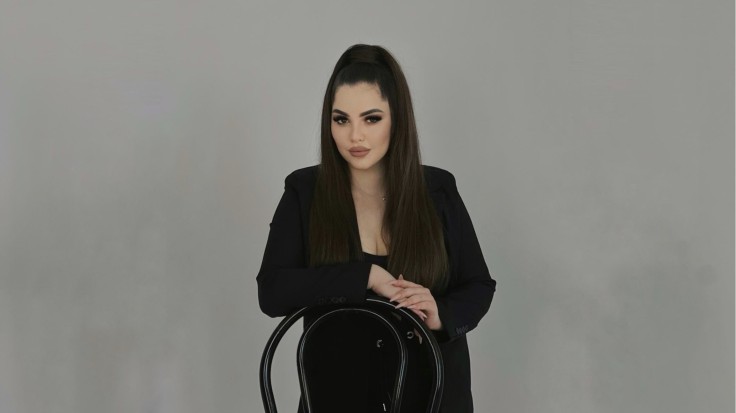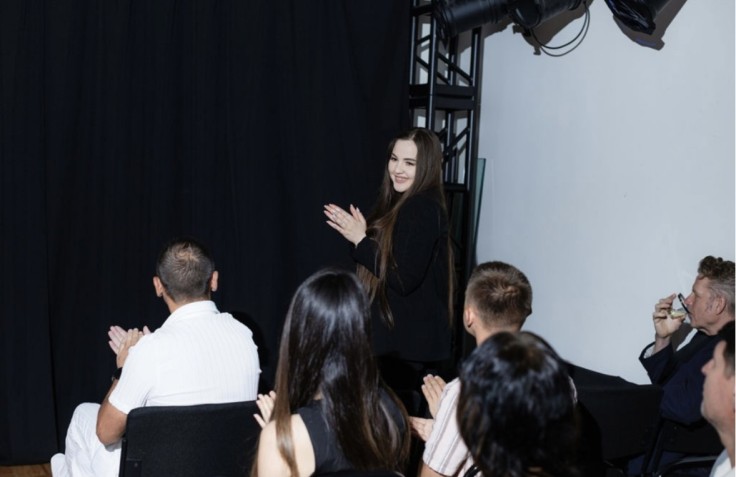
In today's ever-evolving music scene, artists are not just voices—they are visionaries, educators, and global storytellers. Karina Terentyeva is a prime example. With over a decade of vocal performance experience and a portfolio that spans international competitions, film festivals, academic publications, and stage collaborations, she brings a unique blend of artistry and intellect to everything she touches.
A silver medalist at the 2024 World Art Festival in Skopje and a jury member at the 2025 Follow Your Heart Film Festival in New York, Terentyeva represents a new wave of artists who view music not only as performance, but as dialogue. We spoke to her about her path from Almaty to the world stage—and what it truly means to sing with purpose.
"Art connects people—that's what I stand for."
You recently served as a jury member at a film festival in New York. How did that compare to performing?
It's a very different energy, but equally meaningful. Evaluating artistic work teaches you empathy—you begin to understand how much goes into a single creative decision. I wasn't just watching films; I was analyzing structure, intent, emotional delivery. My background in socio-cultural studies helped a lot—it trains you to see art as communication, not just spectacle. And when you realize how universal certain emotions are, how stories resonate across languages and borders, it deepens your belief that art truly connects people.
"Performing Whitney Houston was not just a song—it was a responsibility."
Your second-place finish at the World Art Festival in Skopje was a big moment. What led you to that stage?
That competition was a challenge I gave myself. I knew I wanted to grow beyond my comfort zone. Choosing "I Will Always Love You" was both a risk and a statement. That song is emotionally enormous—you can't fake it. I had to rehearse not just the notes, but the feeling. I worked with a vocal coach, focused on breath control, phrasing, emotional nuance. Standing in front of a European jury—legendary performers, producers—I wasn't just singing. I was representing Kazakhstan. That sense of cultural responsibility gave me strength.
"Academic work made me a better performer."
You've also published academic papers in cultural studies. How does research influence your stage presence?
It influences everything. When I prepare a piece, I don't only think about sound—I think about meaning. What is this piece trying to say? How does it fit into a cultural context? Who is listening, and how do I want them to feel? Academic work helped me develop this mindset—that performance is an act of communication, not just execution. It's not about being perfect. It's about being honest and intentional.
"There is no 'high' or 'low' art—only sincere art."
You've worked across genres: opera, pop, jazz, even film sets. How do you stay versatile?
For me, versatility is natural—because I don't draw boundaries between styles. Singing at the Almaty Opera Ball was about tradition and discipline. Singing pop at international festivals is about immediacy and emotion. Even being an extra in a film taught me something: how to support a larger vision, how narratives are built. My duo AIARU was another form of creative dialogue. Every project adds to your palette. The only constant is sincerity.
"Being part of a community keeps you growing."
You're also active in professional associations and competitions. Why is that important?
Because artists need each other. We grow through feedback, collaboration, conversation. Being part of international platforms like Art US Nation or serving on juries—it's not about status. It's about connection. These spaces remind you that you're not alone. That your work matters. And that you have a responsibility to contribute not only as a performer, but as a peer, a mentor, even a critic.

Looking Ahead
As Karina prepares for her next wave of performances and creative projects, she continues to defy categorization—an artist equally comfortable on stage, in discussion panels, or behind the scenes at international festivals. Her journey proves that artistic excellence is not just about talent, but about thought, empathy, and cultural exchange.
"Technique is important," she says. "But without meaning, it's just sound. When art carries meaning—that's when it becomes unforgettable."
© 2026 MusicTimes.com All rights reserved. Do not reproduce without permission.







